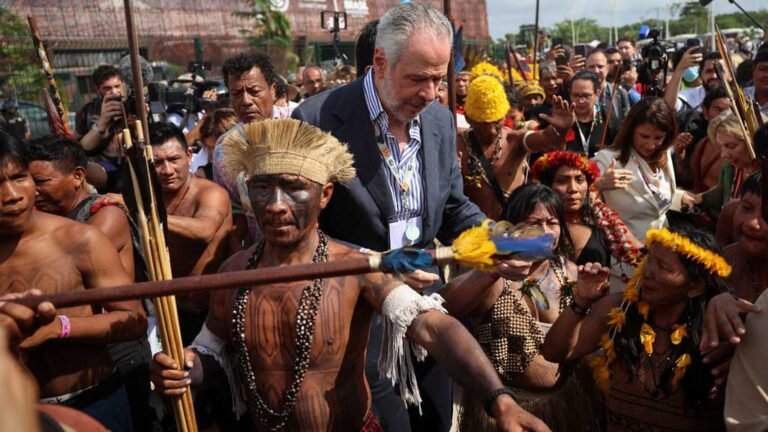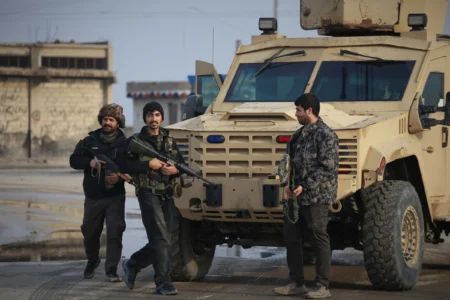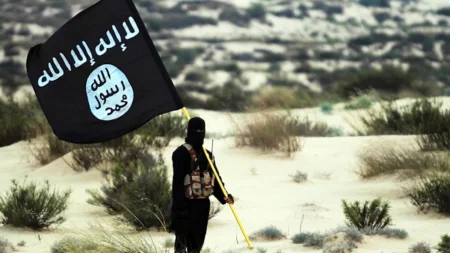Protesters blocked the main entrance to the Cop30 climate summit in Belém, Brazil, on Friday morning, demanding to speak to President Luiz Inácio Lula da Silva about the plight of Indigenous peoples.
About 50 members of the Munduruku people from the Amazon basin, with support from international environmental groups, staged the blockade. Riot police, soldiers, and military vehicles stood by as the protesters tried to deliver their message.
One protester said, “We demand the presence of President Lula, but unfortunately we are unable to do so, as always. We were never listened to.” The group instead met with André Corrêa do Lago, the Cop president, who spent over an hour listening to their concerns.
The blockade caused long lines outside the summit. Delegates were redirected to a side entrance, while activists later moved to another building to continue discussions with Corrêa do Lago.
The protests reflect a broader push for civil society involvement at Cop30. This year’s conference, the first in four years to be held in a democracy, encourages the participation of Indigenous groups and other non-governmental organizations.
UN Secretary-General António Guterres emphasized the need for Indigenous and civil society voices to counterbalance corporate lobbyists, who have heavily influenced past summits. Analysis by the Kick Big Polluters Out coalition found that one in 25 participants this year is a fossil fuel lobbyist. Corrêa do Lago has also highlighted civil society’s role in raising negotiators’ ambition.
Activists have arrived in Belém from across the Amazon, often by boat. On Wednesday, more than 100 vessels formed a protest flotilla in Guajará Bay near the Federal University of Pará, which hosts a parallel “people’s summit.”
On Saturday, two inflatable serpents representing resistance will be paraded through the city, symbolizing the fight to protect the Amazon, the frontline of global forest conservation.
Civil society groups are also advocating for the Belém Action Mechanism (Bam), a formal body to support a “just transition” to a low-carbon economy. This mechanism would prioritize local communities and workers in climate decision-making.
Most events at Cop30 have remained peaceful and include cultural performances, such as by Brazilian musician Gilberto Gil. Raoni Metuktire, leader of the Indigenous Kayapó, said the conference gives the forest a voice. He condemned the government’s approval of oil exploration off the Amazon coast, calling it “a very bad thing for us.”
Kudakwashe Manjonjo, adviser for Power Shift Africa, praised Brazil’s culture of mass movements, noting that the global south is leading collective climate action. Luiza Salek, from the Indigenous food sovereignty group, emphasized the importance of being heard after years of restrictions on demonstrations at previous Cops.
Inside the conference, official negotiations continued late into the evening. The Brazilian presidency extended talks to 9pm on Thursday to address key issues including finance, trade, emissions pledges, and transparency. Similar extensions are expected, as Brazil seeks progress ahead of the stocktake session on Saturday.
The protests and demonstrations at Cop30 highlight the ongoing struggle of Indigenous peoples and civil society to influence global climate decisions. Organizers hope the summit will lead to concrete action to protect the Amazon and ensure a just transition for vulnerable communities.







